Mozambqiue: Criminal case opened against eight involved in gold theft - AIM report
Cyclone Idai: Municipality of Beira awaits its share of international aid, says Daviz Simango
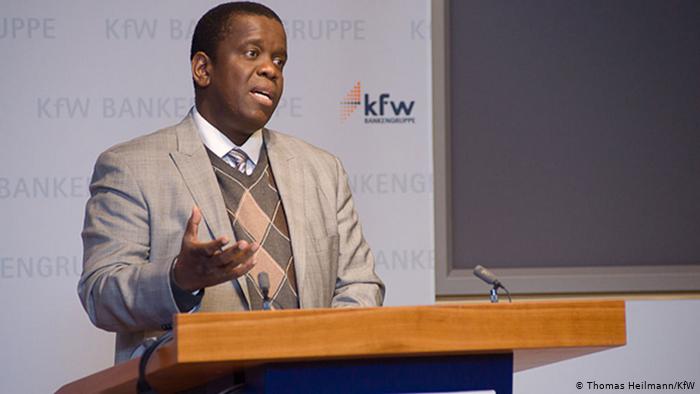
Daviz Simango, mayor of the city of Beira, central Mozambique. File photo: DW
Financial aid is now the watchword. Daily, millions of Euros of support are announced, but how will they be channelled to the affected areas is not known. The mayor of Beira, leader of opposition party MDM, is also waiting for his share.
Initially there was no coordination between the central government and Beira municipality, which is controlled by Mozambique’s second-largest opposition party, the Mozambique Democratic Movement (MDM), in assisting those affected by Cyclone Idai. Each side was dancing to its own tune. Twenty days later, DW Africa tried to find out from Mayor Daviz Simango if anything has changed.
DW Africa: Is joint work between Beira city hall and the central government going any better in the context of this crisis?
Daviz Simango (DS): I think the safest thing to say is that today we have to unite for the Donor Conference to take place between 23rd and 30th May. It is a sign that our Mozambicanity speaks louder, and above all that our brotherhood still exists. I think it is a good principle to unite us, and show that we are united as Mozambicans.
DW Africa: Specifically, what kind of support is sought from donors?

DS: We’ve already conducted a survey, but we are now in the second phase involving partners, the UN Habitat and UNICEF and there are Dutch partners from before. Beira is a coastal city and suffered as such [with the Cyclone Idai], so that is a high priority for us, because if our coastline is not protected, no investor is going to feel safe.
We must protect investment, jobs and the development of society and the country itself.
We have the problems of roads, which comprise a huge problem because of the floods, and we have all the infrastructure that has to be rehabilitated. We want to start with the second phase of the drainage system, to ensure that the climate change component linked to floods and rain is protected, and of course to prepare new regulation to oblige the city to be able to withstand strong winds.
We need to get children back to school. Classes have restarted, but some schools do not yet have roofs. Neither do hospitals and some municipal buildings. Neighbourhood complexes and sports facilities are all damaged. So there is a series of urban infrastructures that need work to meet the needs of the city.
DW Africa: Of the international aid announced, what portion will the central government send to Beira? Has this been estimated already?
DS: Not yet, and we’re anxious to hear about it. We know that there are certain amounts coming in or on their way. What is important [to say] is that we expect to be informed at the proper time, so that we can make good use of it, [taking into account] the needs we have.
DW Africa: Meanwhile there is another donor meeting later this month. Does it make sense for two meetings that aim at the same goal?
DS: What happened was that the Beira municipality began the process of preparing for the Donor Conference and addressed the issue and dealt with the donors, marking the date for April 24. We said that we wanted to add the Government given that there are affected areas that need this sustainability conference . I presented the problem to the President of the Republic [Filipe Nyusi] and he agreed that we could do a joint thing, the Council of Ministers determined that, yes, then that means that the conference scheduled for April 24 will be held, to give time for authorities from other affected regions to prepare, in the interval from May 23 to 30. What I mean by that is that there will only be one single conference of Mozambicans from the affected regions.
DW Africa: Shortly after Cyclone Idai, you were in Maputo meeting representatives of the international community and seeking support. What was the result of that initiative?
DS: What I did was present the reality of Beira, and make them realise what had happened in Beira, because many of them had information through the press and was necessary that they heard first-hand from a representative of the city where it had happened. And at that meeting I proposed to organise the investment conference, and they agreed that they would participate. Now working they are with us and the government on this joint conference. So the outcome of the meeting I had with donors is exactly the holding of this conference. On the other hand, we have the Dutch team is already on the ground doing the surveys, and the UN Habitat team and UNICEF, who are also working with us. So the great result is that the partners who have joined us to do the survey will provide the necessary data.



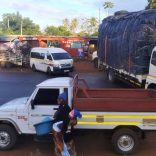
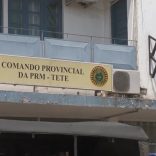
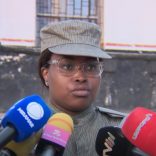
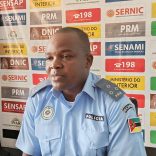
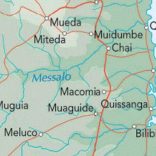




Leave a Reply
Be the First to Comment!
You must be logged in to post a comment.
You must be logged in to post a comment.